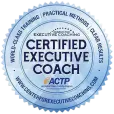
Win by Focusing
“And if I concentrate while he divides, I can use my entire strength to attack a fraction of his.” — Sun Tzu
Spreading Yourself Too Thin Is a Losing Strategy
You start a business, eager to serve as many customers as possible. At first, it seems like a smart move—after all, more customers should mean more sales. But as time goes on, you find yourself stretched thin. Your marketing is scattered, you’re juggling too many types of customers, and every new request forces you to adjust your approach. Instead of becoming an expert at one thing, you feel like you’re constantly scrambling just to keep up.
Most small business owners know this feeling. But Sun Tzu reminds us that spreading ourselves too thin is a mistake. The key to winning in business isn’t serving everyone—it’s concentrating your efforts where they will have the greatest impact.
Instead of dividing your time, energy, and resources trying to be everything to everyone, success comes from focusing on a niche, refining your marketing, and becoming the best at serving a specific audience.
The Power of Specializing: Serve a Specific Market and Dominate It
Most small businesses try to attract as many customers as possible, but the ones that thrive focus on serving a specific group exceptionally well.
Example: Oak & Ivy Bakery started by offering everything—wedding cakes, custom cookies, bread, and catering. But over time, they realized that their best-selling product, the one customers raved about, was their French macarons. They were one of the only bakeries in town that could make them well, and high-end event planners had started ordering them in bulk. Instead of continuing to juggle an overwhelming menu, they transitioned to specializing in French pastries. Within a year, they had transformed from just another bakery into the go-to shop for premium macarons and pastries, commanding higher prices and reducing daily stress.
Key Insight: A business that tries to serve everyone struggles to build a reputation. A business that focuses on a niche becomes the obvious choice for the right customers.
Challenge: Find your niche using these three questions:
- Which customers do I enjoy working with the most?
- Which customers bring in the highest profits with the least effort?
- Which customers rave about my business and refer others?
If a customer fits all three, they’re likely your ideal audience.
Know Your Best Customers and Speak Directly to Them
The better you understand your ideal customer, the easier it is to reach them and give them exactly what they need.
Example: Willow & Pine Home Design originally offered general interior decorating services. But after interviewing past clients, they noticed a pattern—most of their happiest customers were empty nesters downsizing to smaller homes. They refined their brand to focus exclusively on helping retirees design beautiful, functional downsized spaces. Not only did they attract more of their ideal clients, but referrals also skyrocketed.
Key Insight: The clearer your customer profile, the easier it is to attract, market to, and serve them.
Challenge: Test your assumptions about your ideal customer:
- Send a short survey to past customers asking why they chose you and what they valued most.
- Review past emails, testimonials, and reviews for patterns in what customers praise.
- Talk to your best clients—ask them what they struggled with before finding your business.
Taking this step ensures you’re building your strategy based on real insights, not guesswork.
Stop Wasting Time and Money on the Wrong Marketing Channels
Many businesses waste time and money trying to be visible everywhere. Focused businesses concentrate on the platforms and methods that actually reach their ideal customers.
Example: Hearthstone Café spent years promoting itself on every social media platform, trying to reach as many people as possible. But after reviewing their customer data, they realized most of their loyal customers were professionals looking for a quiet, welcoming place to work. They dropped broad social media advertising and started focusing on LinkedIn, local networking groups, and partnerships with coworking spaces. The result? More regular customers, less wasted marketing spend.
Key Insight: Being everywhere is exhausting. Being in the right place is profitable.
Challenge: Set a timer for 15 minutes. Write down every marketing platform you use. Cross out the ones that haven’t brought in leads or sales in the past three months. Choose one to eliminate this week, and reinvest that time or budget into a channel that’s actually working.
Focus Your Resources and Deliver a Superior Product or Service
When you focus, you can invest more into making your core offering the best it can be.
Example: Summit Yoga Studio initially tried to cater to every type of fitness enthusiast, offering a mix of HIIT classes, spin sessions, and meditation workshops. But they were constantly struggling to fill classes and manage instructor schedules. After reviewing attendance data, they realized their strength was in restorative and mindfulness-based yoga. They eliminated everything else and became the leading studio for stress relief and relaxation. Their smaller, more dedicated audience was willing to pay premium prices for expert instruction.
Key Insight: The businesses that win aren’t the ones that do everything—they’re the ones that do one thing exceptionally well.
Challenge: Look at your offerings. Are there services or products that spread your resources thin without delivering great results? Consider trimming one to focus more on what you do best.
Be the Obvious Expert in Your Space
Customers don’t want a business that does everything. They want the best at what they need.
Example: Beacon Creative Agency originally offered a little bit of everything—social media, branding, SEO. But they realized that their most profitable and successful work was email marketing for independent boutiques. They transitioned to focusing only on email marketing for retail businesses, quickly becoming the go-to experts in that space. Their competitors dismissed the niche as too narrow, but the agency built a thriving business by being the best at one thing.
Key Insight: Being a generalist makes you replaceable. Being a specialist makes you the only choice.
Challenge: What is one way you could position yourself as an expert in your field? Could you offer specialized services, speak at industry events, or create content that highlights your deep knowledge? Choose one step to take this month.
Your Next Steps: Win by Focusing Where Others Are Scattered
“And if I concentrate while he divides, I can use my entire strength to attack a fraction of his.”
Sun Tzu’s strategy applies perfectly to small business: instead of spreading yourself thin, focus your energy where it has the most impact.
Here’s what to do next:
- Identify the strongest part of your business. What service, product, or audience delivers the best results? How can you focus more on that?
- Refine your ideal customer profile. Who are they? What do they need? Where do they spend time?
- Cut the distractions. Are there services, marketing efforts, or products that don’t align with your focus? Let them go.
- Commit to being the best. How can you strengthen your expertise in your niche?
Most small businesses fail not because they aren’t good at what they do—but because they try to do too much. The strongest businesses aren’t the ones that chase every opportunity. They’re the ones that make a clear decision about who they serve, put all their effort into it, and become the only logical choice for their ideal customer.
What’s one shift you can make today to start focusing your energy where it matters most?




